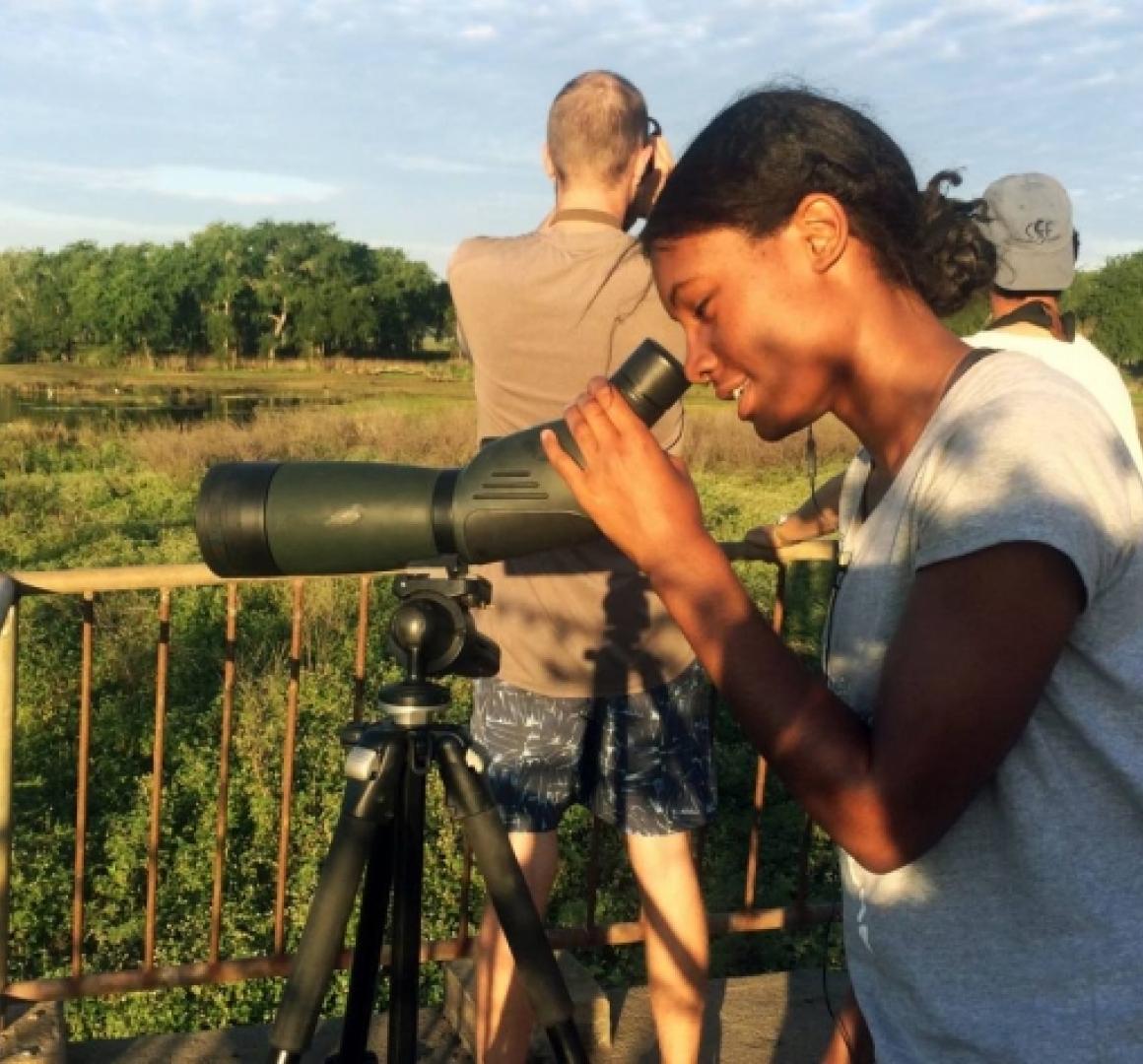Protecting corn, saving elephants
Princeton senior Reynolds pursues conservation through conflict resolution

When Princeton University senior Alana Reynolds arrived in Mozambique last June to conduct fieldwork for her thesis, she realized that she had to see elephants differently if she wanted to help protect them.
She had traveled to the southeast African country with support from the Becky Colvin Memorial Award presented annually by the Princeton Environmental Institute (PEI) and the Department of Ecology and Evolutionary Biology to construct and test the effectiveness of various types of fences that subsistence farmers on the border of the 1,500-square mile Gorongosa National Park could use to protect their crops from elephants.
Reynolds knew the project would be complicated. The materials for the fences had to be lightweight and low-maintenance, something that people in remote villages accessible only by river could transport and operate. She would have to use GPS data and local reports to position the fences at the specific points along the Pungwe River — often choked with towering thickets of razor-sharp grass — where elephants crossed out of the park. Yet, the fences still had to be sturdy or ingenious enough to stop elephants, animals that “just push trees over for fun,” Reynolds said.
She had been prepared for the trials of fieldwork by experienced researchers such as her adviser Rob Pringle, assistant professor of ecology and evolutionary biology. But for her project to truly be successful, Reynolds also needed to approach it from the mindset of the farmers around Gorongosa whose crops are raided by elephants roughly 1,000 times per year.
“These animals, while beautiful to us, can be a real source of pain and loss to other people,” said Reynolds, who will graduate June 5 with a degree in ecology and evolutionary biology and a certificate in environmental studies.
“For me as a researcher whose livelihood has not ever been threatened by a lion or an elephant, it’s difficult to understand the animosity or the desire to poison or shoot them,” she said. “In the United States, rarely are the outcomes of human-wildlife conflict death or devastation. In Africa, that can very much be the outcome.”
Like her thesis project, Reynolds’ lifelong passion for the environment is rooted in the desire to help resolve human-wildlife conflict. “If you take all the environmental issues I’ve ever worked on and strip them down to their foundations, they’re all about perceived human conflict and preserving ecosystems in their natural state,” she said.


